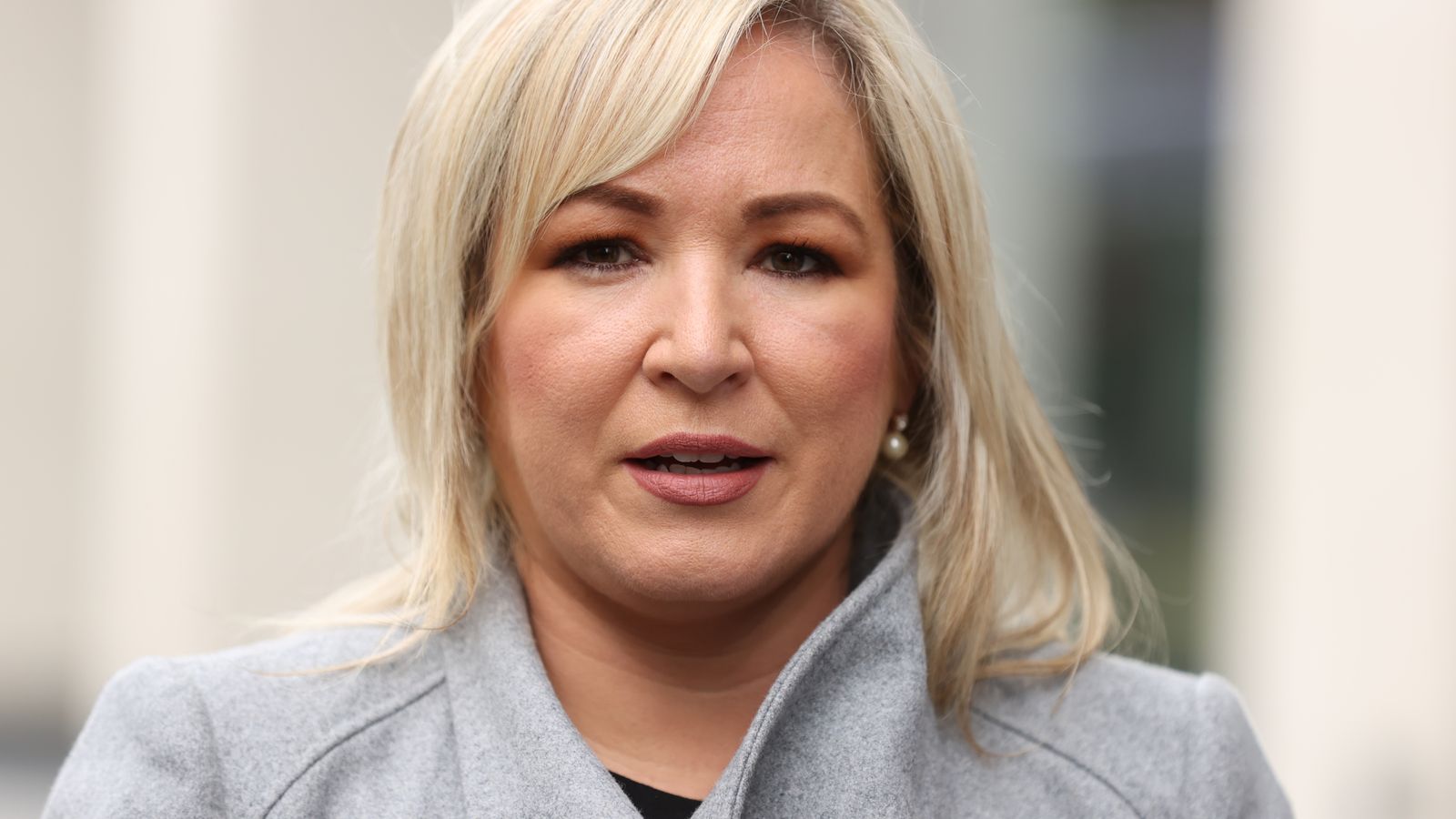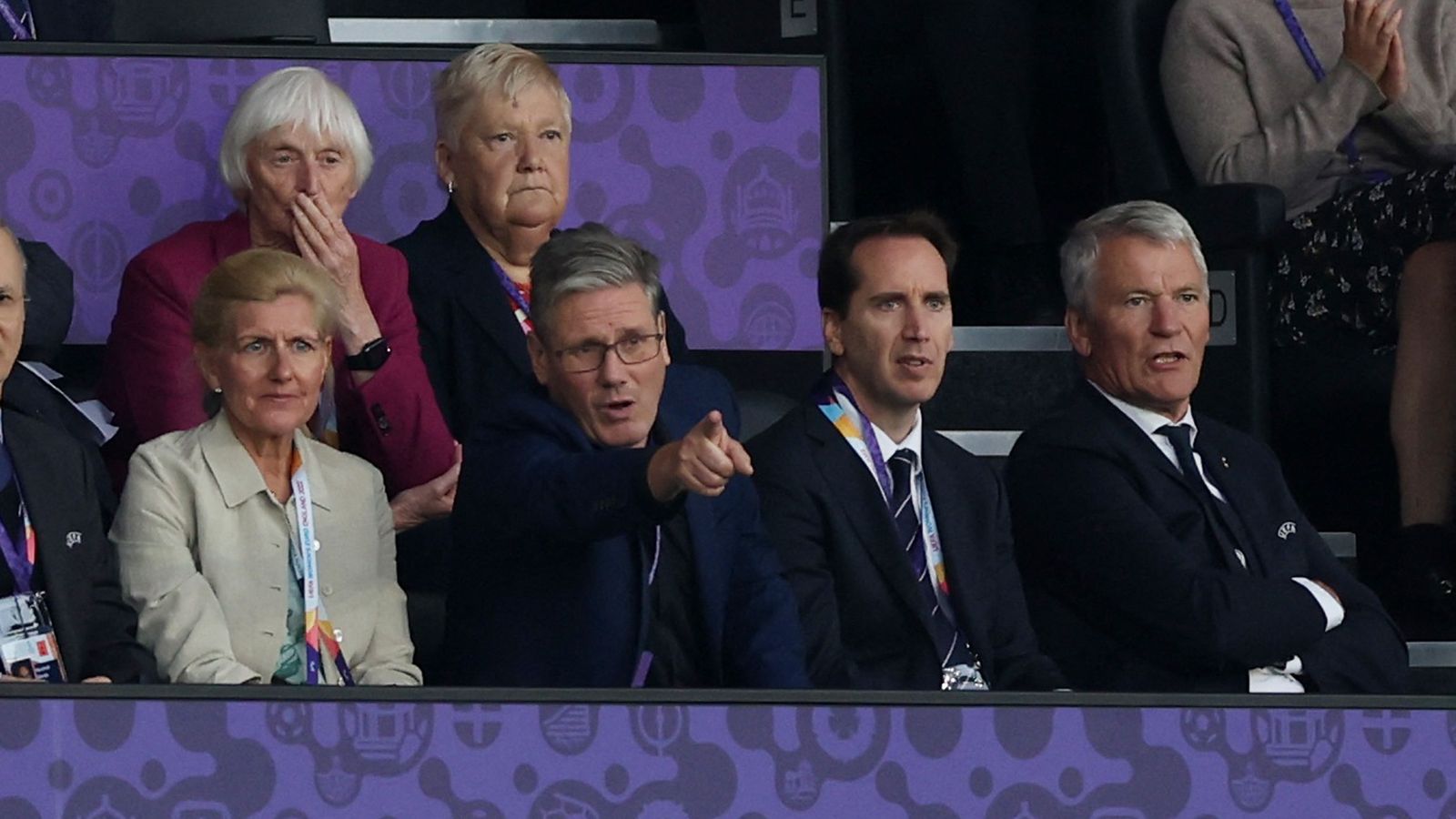The Northern Ireland secretary has given “no clarity” on how he’ll deal with the Stormont crisis, Michelle O’Neill has said.
A 24-week deadline for establishing a working power-sharing executive following May’s election expired on Friday.
The UK government now has a legal responsibility to call a fresh election within 12 weeks.
A DUP boycott in protest at the Northern Ireland Protocol has prevented an administration being formed.
Ms O’Neill, Sinn Fein’s vice president, said her meeting on Tuesday with Chris Heaton-Harris yielded no answers about what he intends to do.
“The secretary of state told us that he had a legal obligation, that he would call that election at one minute past midnight (on Friday),” she said.
“Then what we saw unfold last Friday was a bizarre U-turn, the failure to continue in that vein.
Northern Ireland secretary says he will call Stormont election after attempts to restore executive fail
Northern Ireland set for pre-Christmas Assembly election as deadline passes
What’s the point in another Northern Ireland election if devolution is dead?
“We’ve met with him again this morning. We’ve asked him a number of questions, but I have to say (he) provided no clarity, he provided no further information as to the U-turn.
“We’re left with no information in terms of what happens next, or at least what he intends to do next.
“It’s very clear he has a legal obligation in which to call an election if an executive is not formed.
“But he did not colour in the lines today. He certainly did not provide any clarity around what he intends to do next, apart from to say that he’s here to meet with people.”
The Northern Ireland secretary said on Friday he still intended to call a new election, but didn’t set a date.
He promised more information after holding talks with the various parties today.
The DUP has said it won’t return to power sharing until action is taken to reform the protocol and its barriers on trade between Britain and Northern Ireland.
The UK Government has said it will be changed – either by compromise with the EU or unilaterally via new domestic laws.
However, the European Commission has said that would breach an international treaty and could trigger retaliatory action.








